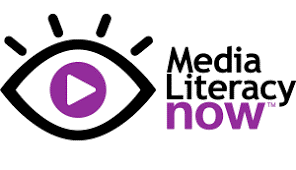Albany to send $35.9B to NY schools as negotiations over mayoral control continue, Hochul says – By Julian Shen-Berro, Chalkbeat
Gov. Kathy Hochul said a preliminary budget agreement would allocate roughly $35.9 billion to New York schools — a record high — as state lawmakers closed in on a deal on Monday.
Though Hochul announced “the parameters of a conceptual agreement” on a $237 billion state budget, she said that Albany leaders had not yet finalized negotiations over mayoral control. Hochul told reporters she was pushing to extend New York City’s 20-year-old governance model — a move that would keep Mayor Eric Adams at the helm of the nation’s largest school system.
“There’s still time to see if we can get this worked out,” she said. “There’s a lot of complications with that.”
The city’s school governance structure, which expires on June 30, gives the mayor the power to select a schools chancellor and appoint a majority of members to the Panel for Educational Policy, or PEP, a city board that votes on major policy proposals and contracts. In a budget proposal earlier this year, Hochul had called for a four-year extension of mayoral control.

Gov. Kathy Hochul
House committee advances bill to require overdose-reversing drug in Alaska schools – By Claire Stremple, Alaska Beacon
A proposal to require Alaska schools to keep opioid-overdose-reversing drugs on campus advanced out of the House Education Committee on Monday.
Rep. DeLena Johnson, R-Palmer, has said House Bill 202 is intended to save student lives as opioid overdoses have begun to happen on Alaska campuses.
“These are drugs that are easily accessible, they’re easily administered, and they should be in everyone’s first-aid kit,” she said.
Originally, the bill would have required the drug to be present at all school-sponsored activities and on school buses, but the committee reduced those requirements.

Media literacy legislation gets hearing in legislature – By Molly Miller, Columbia Missourian
Despite growing tensions between elected officials nationwide and the media, Missouri lawmakers are looking to educate students on media and digital literacy through a new pilot program.
House Bill 1513 and Senate Bill 1311 contain provisions to help elementary and secondary students navigate an online world.
The bills contain identical language that originated from a model bill written by the advocacy group, Media Literacy Now. Media Literacy Now aims to educate students through the public school system on key media literacy competencies.
Julie Smith, a state advocacy leader for Media Literacy Now and a professor of communications at Webster University, originally brought the model bill to Rep. Jim Murphy, R-St.Louis, ahead of the 2020 legislative session. Murphy, the House bill’s sponsor, has introduced varying iterations of the original model bill in the years since then.

Education Watch: Bill Would Revamp Oklahoma’s Graduation Requirements – By Jennifer Palmer, Oklahoma Watch
Rep. Rhonda Baker, R-Yukon, wants to update the state’s high school graduation requirements, giving students more flexibility to choose courses that align with their career goals.
House Bill 3278 would make a few big changes to what courses students must take to earn a diploma.
First, students would have to complete four years of math, upping the current requirement by one year. Two of the credits would need to be algebra 1 and either geometry or algebra 2. The bill grants more flexibility to what counts for the other two math credits, including through real world application courses.
Oklahoma would join 20 states and the District of Columbia that require at least four years of math, according to the Education Commission of the States.
Additionally, students would need to complete six credits in subjects that align with their Individual Career and Academic Plan, which is each student’s guide to what they want to achieve after high school. These classes could be in core subjects or world languages, computer technology, Junior Reserve Officers’ Training Corps, fine arts, or other approved courses.












